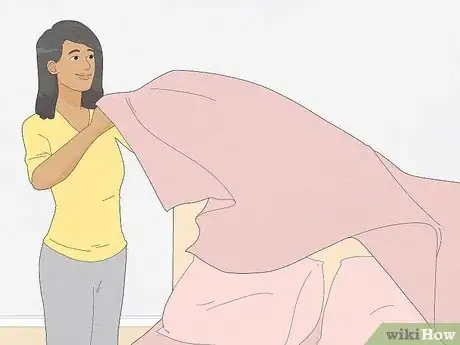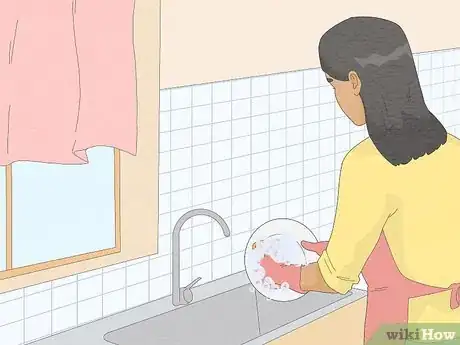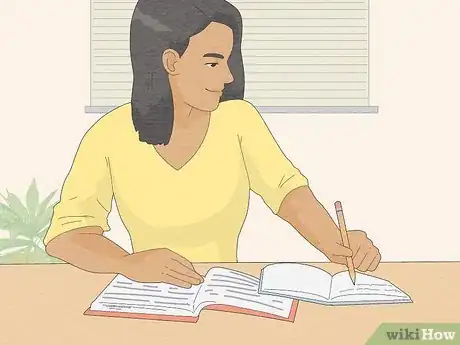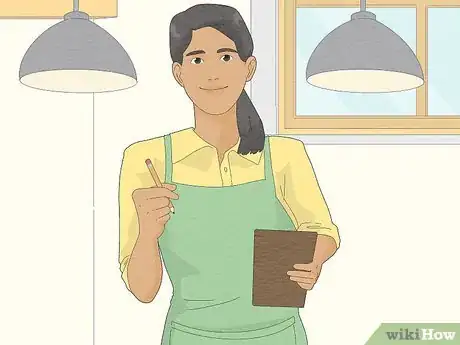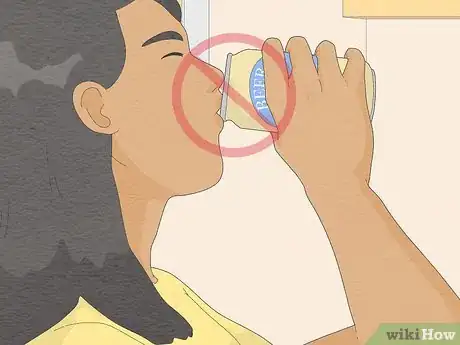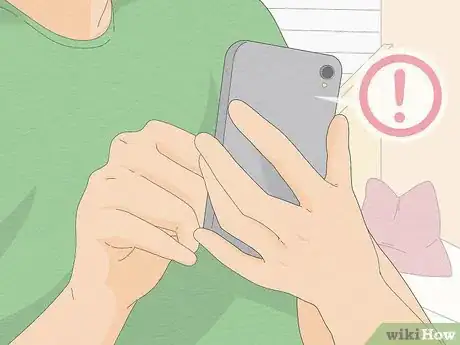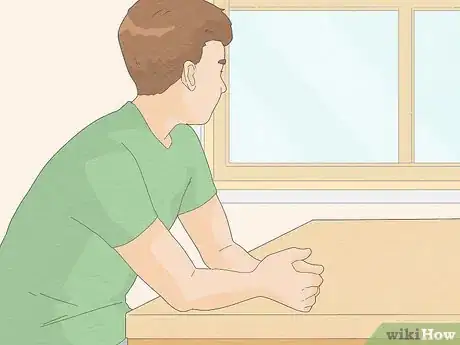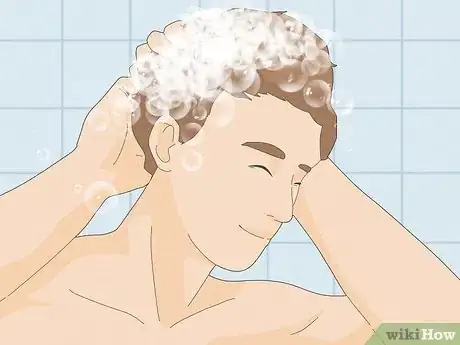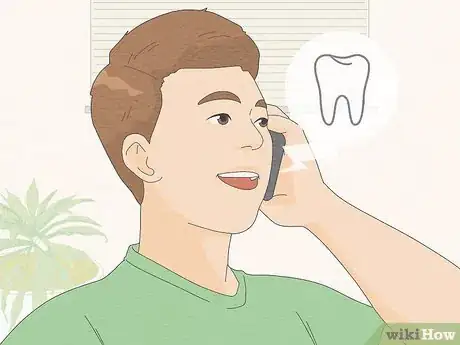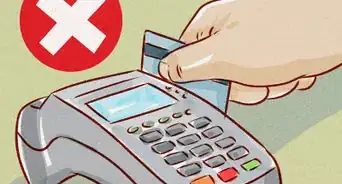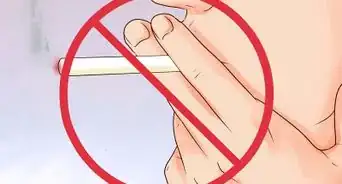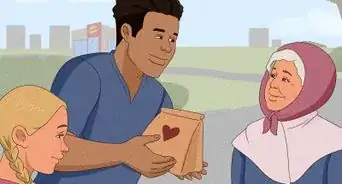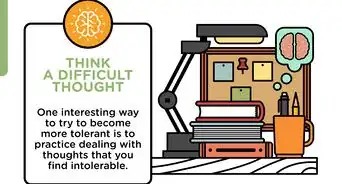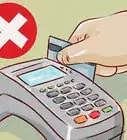This article was co-authored by Kirsten Parker, MFA and by wikiHow staff writer, Jessica Gibson. Kirsten Parker is a Mindset and Action Coach based in her hometown of Los Angeles, California. She helps high achievers overcome stress and self-doubt. She specializes in increasing one's confidence and clarity by incorporating tools from positive psychology, mindful habit change, and self-regulation into her coaching. She is a Certified HeartMath Practitioner trained in Stress, Anxiety, and Intelligent Energy Management along with Emotional Intelligence and the Science of Self-Acceptance. She also holds an MFA from Yale University School of Drama in Stage Management.
There are 12 references cited in this article, which can be found at the bottom of the page.
wikiHow marks an article as reader-approved once it receives enough positive feedback. In this case, 81% of readers who voted found the article helpful, earning it our reader-approved status.
This article has been viewed 288,994 times.
Being a teenager can be hard at times—between parental expectations, school work, and relationships with your friends, you might feel like you have the weight of the world on your shoulders. Instead of seeing these as stressors, consider all the opportunities you have! As a teen, you have lots of experiences and choices that let you prove how responsible you are.
Steps
Expert Q&A
Did you know you can get expert answers for this article?
Unlock expert answers by supporting wikiHow
-
QuestionWhat's a good first step?
 Rachel ClissoldRachel Clissold is a Life Coach and Consultant in Sydney, Australia. With over six years of coaching experience and over 17 years of corporate training, Rachel specializes in helping business leaders move through internal roadblocks, gain more freedom and clarity, and optimize their company’s efficiency and productivity. Rachel uses a wide range of techniques including coaching, intuitive guidance, neuro-linguistic programming, and holistic biohacking to help clients overcome fear, break through limitations, and bring their epic visions to life. Rachel is an acclaimed Reiki Master Practitioner, Qualified practitioner in NLP, EFT, Hypnosis & Past Life Regression. She has created events with up to 500 people around Australia, United Kingdom, Bali, and Costa Rica.
Rachel ClissoldRachel Clissold is a Life Coach and Consultant in Sydney, Australia. With over six years of coaching experience and over 17 years of corporate training, Rachel specializes in helping business leaders move through internal roadblocks, gain more freedom and clarity, and optimize their company’s efficiency and productivity. Rachel uses a wide range of techniques including coaching, intuitive guidance, neuro-linguistic programming, and holistic biohacking to help clients overcome fear, break through limitations, and bring their epic visions to life. Rachel is an acclaimed Reiki Master Practitioner, Qualified practitioner in NLP, EFT, Hypnosis & Past Life Regression. She has created events with up to 500 people around Australia, United Kingdom, Bali, and Costa Rica.
Certified Life Coach
-
QuestionIs feeling bad about my mistakes going to help me be more responsible?
 Rachel ClissoldRachel Clissold is a Life Coach and Consultant in Sydney, Australia. With over six years of coaching experience and over 17 years of corporate training, Rachel specializes in helping business leaders move through internal roadblocks, gain more freedom and clarity, and optimize their company’s efficiency and productivity. Rachel uses a wide range of techniques including coaching, intuitive guidance, neuro-linguistic programming, and holistic biohacking to help clients overcome fear, break through limitations, and bring their epic visions to life. Rachel is an acclaimed Reiki Master Practitioner, Qualified practitioner in NLP, EFT, Hypnosis & Past Life Regression. She has created events with up to 500 people around Australia, United Kingdom, Bali, and Costa Rica.
Rachel ClissoldRachel Clissold is a Life Coach and Consultant in Sydney, Australia. With over six years of coaching experience and over 17 years of corporate training, Rachel specializes in helping business leaders move through internal roadblocks, gain more freedom and clarity, and optimize their company’s efficiency and productivity. Rachel uses a wide range of techniques including coaching, intuitive guidance, neuro-linguistic programming, and holistic biohacking to help clients overcome fear, break through limitations, and bring their epic visions to life. Rachel is an acclaimed Reiki Master Practitioner, Qualified practitioner in NLP, EFT, Hypnosis & Past Life Regression. She has created events with up to 500 people around Australia, United Kingdom, Bali, and Costa Rica.
Certified Life Coach
-
QuestionWhat does it really mean to be responsible?
 Rachel ClissoldRachel Clissold is a Life Coach and Consultant in Sydney, Australia. With over six years of coaching experience and over 17 years of corporate training, Rachel specializes in helping business leaders move through internal roadblocks, gain more freedom and clarity, and optimize their company’s efficiency and productivity. Rachel uses a wide range of techniques including coaching, intuitive guidance, neuro-linguistic programming, and holistic biohacking to help clients overcome fear, break through limitations, and bring their epic visions to life. Rachel is an acclaimed Reiki Master Practitioner, Qualified practitioner in NLP, EFT, Hypnosis & Past Life Regression. She has created events with up to 500 people around Australia, United Kingdom, Bali, and Costa Rica.
Rachel ClissoldRachel Clissold is a Life Coach and Consultant in Sydney, Australia. With over six years of coaching experience and over 17 years of corporate training, Rachel specializes in helping business leaders move through internal roadblocks, gain more freedom and clarity, and optimize their company’s efficiency and productivity. Rachel uses a wide range of techniques including coaching, intuitive guidance, neuro-linguistic programming, and holistic biohacking to help clients overcome fear, break through limitations, and bring their epic visions to life. Rachel is an acclaimed Reiki Master Practitioner, Qualified practitioner in NLP, EFT, Hypnosis & Past Life Regression. She has created events with up to 500 people around Australia, United Kingdom, Bali, and Costa Rica.
Certified Life Coach
References
- ↑ https://wpsdk12.org/uploads/wphs/forms/HV1214384E-Respect-and-Responsibility.pdf
- ↑ https://parentandteen.com/build-trust-be-responsible/
- ↑ https://www.nytimes.com/roomfordebate/2013/04/01/allowances-jobs-and-teaching-the-value-of-a-dollar/teenagers-learn-from-working
- ↑ http://www.mayoclinic.org/healthy-lifestyle/tween-and-teen-health/in-depth/teen-drug-abuse/art-20045921
- ↑ https://teens.drugabuse.gov/blog/post/6-tactful-tips-resisting-peer-pressure-to-use-drugs-and-alcohol
- ↑ https://www.mayoclinic.org/healthy-lifestyle/tween-and-teen-health/in-depth/parenting-tips-for-teens/art-20044693
- ↑ https://kidshealth.org/en/teens/online-id.html
- ↑ https://kidshealth.org/en/teens/deal-with-anger.html#catschool
- ↑ https://kidshealth.org/en/kids/talk-parents.html#catschool
About This Article
Being a responsible teen is all about taking care of your needs and looking out for other people. Although there are a lot of distractions when you’re a teen, try to stay on top of your schoolwork, since this will set you up for success later down the road. Remember to be honest with your parents and your close friends. That way, you’ll have better relationships with them and they’ll be able to help you when you need it. Try to treat other people nicely and help them out whenever you can. You should also surround yourself with positive people who respect you and don’t pressure you into anything you don’t want to do. Don’t be too hard on yourself when you get emotional or make mistakes, since a big part of being a teen is learning to deal with difficult situations. For more advice, including how to stay organized and tidy, read on!
